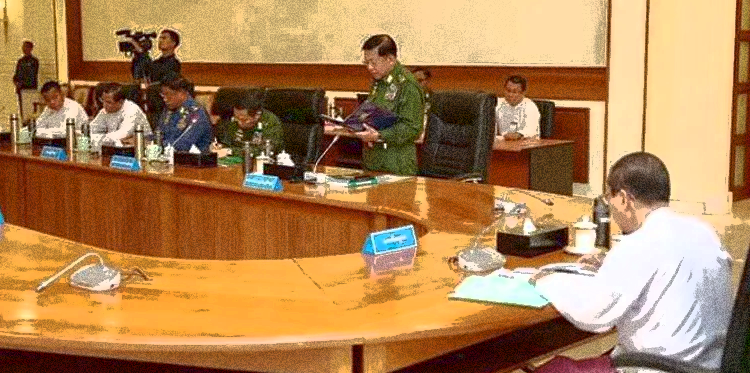Myanmar Spring Chronicle – January 31 by MoeMaKa Media:
Country Navigates Turbulent Path
As Myanmar marks the third anniversary of the military coup, the situation within the country seems to be spiraling toward total destruction. On the night of January 31, the Defense and Security Council, an entity aligned with the Military Council, announced a six-month extension of its term, solidifying the nation’s trajectory under the military’s grip.
Earlier in the day, the National Unity Government (NUG) and select ethnic armed groups released a joint statement titled “Joint Position Statement by Allied Organisations Engaged in Revolutionary Struggle towards Annihilation of Military Dictatorship and Establishment of a Federal Democratic Union.” While the statement lacks specificity about the involved ethnic groups, it outlines a plan for the future, emphasizing goals, objectives, and procedural steps three years after the coup.
Despite some hopeful voices urging the military council to pursue national unity, the subsequent announcement reinforced its commitment to maintain control through military means. Speculations arose after Operation 1027, a period marked by significant military losses for the council, suggesting a potential shift towards political solutions. However, the extension of the Defense and Security Council’s term underscores the military’s determination to address challenges militarily, asserting Min Aung Hlaing’s leadership.
In the NUG and ERO joint statement, the second point of the action plan highlights the willingness for negotiation with the Myanmar military’s responsible leadership, provided they unconditionally accept six political objectives. This stance indicates a potential openness to dialogue, though it may not be universally accepted among anti-military forces, some of which advocate for a more confrontational approach.
The positions of the Military Council, NUG, and select ethnic armed groups reflect the complexities surrounding Myanmar’s political landscape on this grim anniversary. Notably absent from the statement are numerous armed groups across various regions, illustrating the diverse array of perspectives within the country.
As the military council’s control wanes over territories and cities, a continued reliance on military strategies seems imminent. The mental strain on the military forces, coupled with ongoing attacks from ethnic armed groups and the People’s Defense Forces (PDF), points to a protracted period of military confrontation.
Reflecting on the three years since the coup, the nation faces an overwhelming tide of negative outcomes. The coup itself plunged Myanmar into a pit of turmoil and conflict, with no clear exit strategy. As efforts are made to address longstanding issues, new and more intricate challenges continue to emerge, underscoring the uphill battle for stability and recovery in Myanmar.

